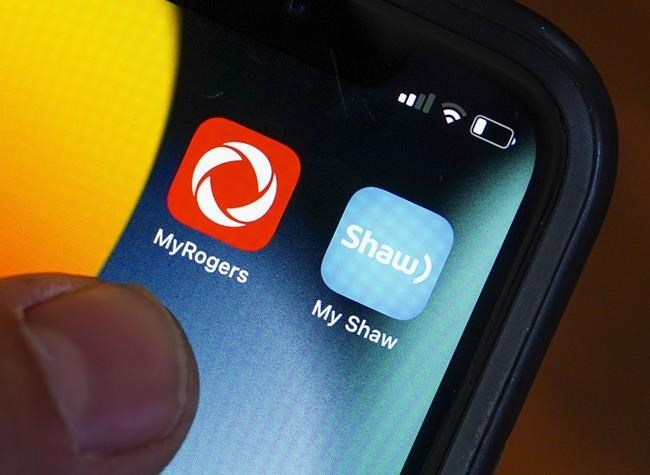OTTAWA — A lawyer for Shaw Communications Inc. says the Competition Bureau's case against the company's proposed merger with Rogers Communications Inc. is built on false assumptions and not based in reality.
Kent Thomson said in closing arguments Wednesday at a Competition Tribunal hearing that the assumptions and evidence about the market share of Shaw's mobile operations put forth by the regulator and the prospects for future profitability of the business don't stand up to the evidence.
"It's incumbent upon this tribunal to step back and do a reality check," he said.
He focused on the conclusions of Nathan Miller, a Georgetown University professor who compiled a report opposing the deal, which the regulator cited in its closing arguments.
Thomson said Miller considerably inflated the market share of Shaw's mobile division in his report, which helped form the basis of his opposition.
"This is just an economist playing with numbers ... without that result, Dr. Miller would have been unable to claim any anticompetitive effects associated with this transaction," Thomson said.
Rather than a prosperous business, Thomson framed Shaw's operations as strained under the twin demands of expanding both its wired cable and internet business as well as its mobile division. He said Shaw had already spent heavily trying to compete with Telus Inc. on their wireline businesses, while its investments in the mobile-side did not look promising.
"They never came close to recovering their investment, and had no realistic prospect of doing so," he said, noting that evidence cited by the bureau about Rogers' own struggles early on with mobile aren't a fair comparison because the market has matured considerably since 1987.
“There is no runway ahead for Freedom. This is a mature industry.”
He said Shaw's owners and executives had no choice but to sell of its businesses, with the mobile side eventually proposed to Quebecor Inc.'s Videotron to appease competition concerns, and the rest to Rogers.
Videotron won't be burdened by the wireline investments needed, while Rogers has the money to make the investments, he said.
On Tuesday, John Tyhurst, representing the Competition Bureau, argued the deal will create an unprecedented relationship of dependence between Rogers and Videotron, a small, regional player.
The absorption of Shaw's "competitive" offerings into Rogers will also hamper the telecom industry, which will see the number of distinct networks in Western Canada shrink from three to two.
The Competition Tribunal hearing, which has spanned more than a month, is scheduled to end Wednesday.
This report by The Canadian Press was first published Dec. 14, 2022.
Companies in this story: (TSX:RCI.B, TSX:SJR.B)
The Canadian Press



